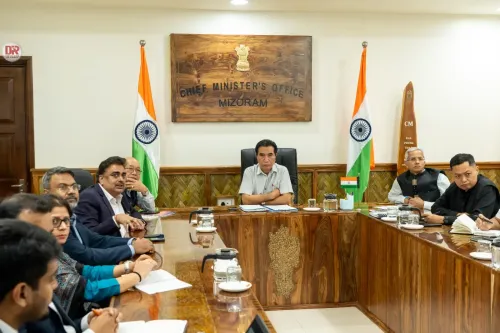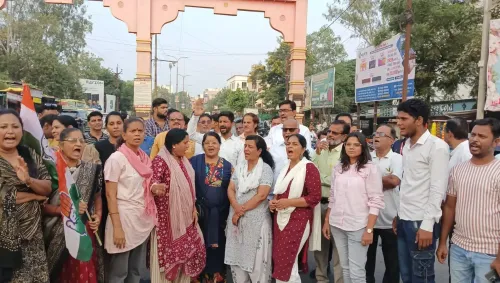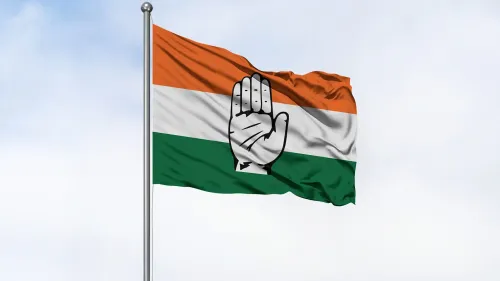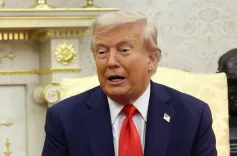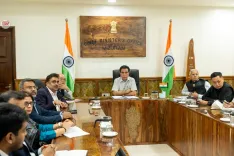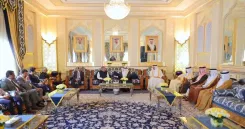What is the Supreme Court's stance on the restoration of J&K statehood?
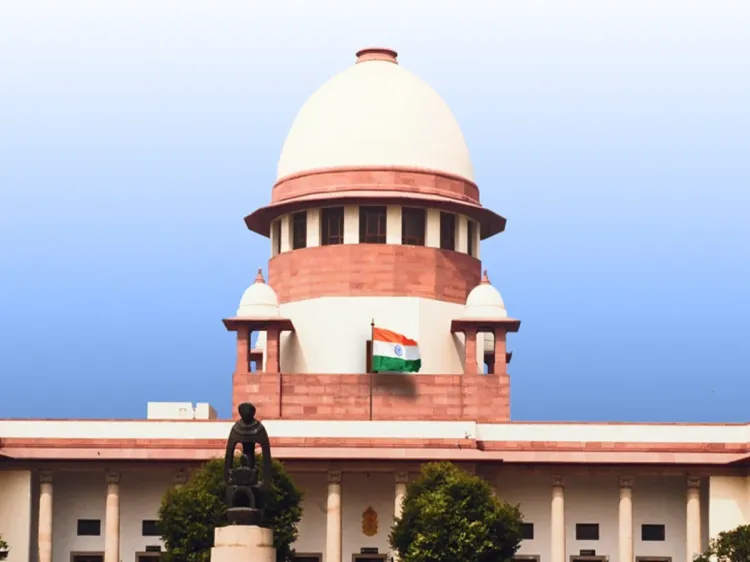
Synopsis
Key Takeaways
- The Supreme Court is reviewing petitions for restoring statehood to Jammu and Kashmir.
- 21 months have passed since the Article 370 judgment with no movement towards statehood.
- The Solicitor General argued for an eight-week delay to consider the matter.
- The Constitution Bench mandated elections in Jammu and Kashmir by September 30, 2024.
- Ladakh’s status as a Union Territory was upheld by the Supreme Court.
New Delhi, Aug 14 (NationPress) The Supreme Court on Thursday requested the stance of the Union government regarding a series of petitions advocating for the prompt restoration of statehood to Jammu and Kashmir.
A Bench led by CJI B.R. Gavai and K. Vinod Chandran was reviewing pleas that argue the prolonged deferment in reinstating statehood is seriously impacting the rights of the residents of Jammu and Kashmir and undermining the principles of federalism.
The petitions highlighted that the lack of a time-sensitive commitment to restore statehood constitutes a breach of federalism, an integral aspect of the Basic Structure of the Constitution.
“It has been over 21 months since the Article 370 ruling. There has been no progress towards the reinstatement of statehood,” asserted senior advocate Gopal Sankaranarayanan, noting that the Constitution Bench had relied on assurances from the Union government regarding the restoration of statehood.
Conversely, Solicitor General Tushar Mehta, while questioning the admissibility of the petitions, urged the apex court to consider the “unique situation” in Jammu and Kashmir and requested that the cases be revisited after eight weeks, claiming this was not the right moment to address the issue.
“The MAs (miscellaneous applications) lack validity. We had made two assurances: elections would be conducted, followed by statehood. Your lordships understand the unique circumstances arising from this region of our country. There are various factors at play,” stated SG Mehta.
“I am perplexed as to why this matter is being raised at this juncture, but please schedule it for eight weeks. I will seek further instructions. My request is for an eight-week delay as this is not the appropriate stage to complicate matters,” Mehta further elaborated.
Following the deliberations, the CJI Gavai-led Bench set the matter for review in eight weeks.
In the verdict regarding 're: Article 370 of the Constitution,' a 5-judge Constitution Bench, led by then CJI D.Y. Chandrachud, left unresolved the issue of whether Parliament can eliminate the essence of statehood by transforming a state into one or more Union Territories. This was based on an oral commitment made on behalf of the Centre that statehood would be reinstated in Jammu and Kashmir. During the oral arguments, the Solicitor General, who is the second-highest legal official in the Centre, indicated that the Union Home Ministry could not provide a specific timeline, stating that it would require “some time” for the restoration of statehood in Jammu and Kashmir.
Nonetheless, the Constitution Bench, which included Justices S.K. Kaul, Sanjiv Khanna, Gavai, and Surya Kant, directed the Election Commission of India (ECI) to initiate preparations for conducting elections for the Legislative Assembly of Jammu and Kashmir, as per Section 14 of the Reorganisation Act, by September 30, 2024, and stated that “restoration of statehood shall occur at the earliest and as soon as possible”.
It affirmed the classification of Ladakh as a Union Territory under Article 3(a) along with Explanation I of the Constitution, which allows for the formation of a Union Territory by separating territory from any state. In May 2024, the Supreme Court dismissed review petitions contesting its judgment, asserting that there was “no error apparent on the face of the record” and declined to revisit the matter in open court.


